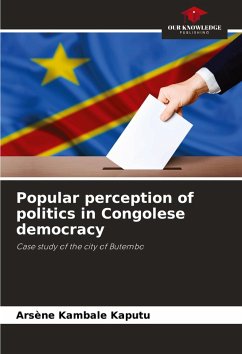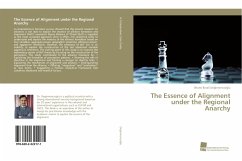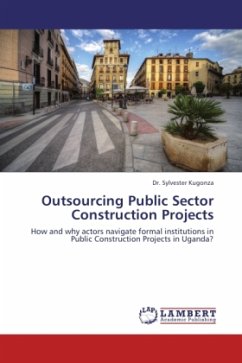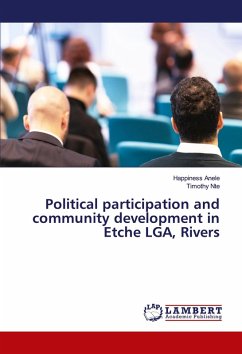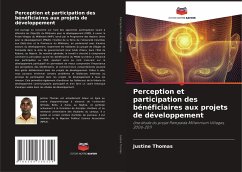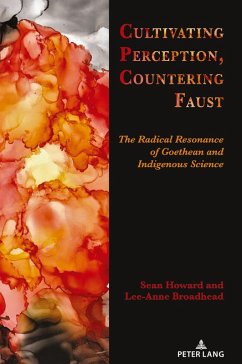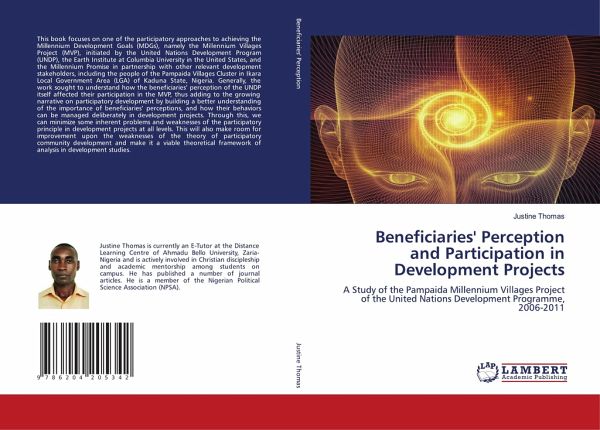
Beneficiaries' Perception and Participation in Development Projects
A Study of the Pampaida Millennium Villages Project of the United Nations Development Programme, 2006-2011
Versandkostenfrei!
Versandfertig in 6-10 Tagen
47,99 €
inkl. MwSt.

PAYBACK Punkte
24 °P sammeln!
This book focuses on one of the participatory approaches to achieving the Millennium Development Goals (MDGs), namely the Millennium Villages Project (MVP), initiated by the United Nations Development Program (UNDP), the Earth Institute at Columbia University in the United States, and the Millennium Promise in partnership with other relevant development stakeholders, including the people of the Pampaida Villages Cluster in Ikara Local Government Area (LGA) of Kaduna State, Nigeria. Generally, the work sought to understand how the beneficiaries' perception of the UNDP itself affected their part...
This book focuses on one of the participatory approaches to achieving the Millennium Development Goals (MDGs), namely the Millennium Villages Project (MVP), initiated by the United Nations Development Program (UNDP), the Earth Institute at Columbia University in the United States, and the Millennium Promise in partnership with other relevant development stakeholders, including the people of the Pampaida Villages Cluster in Ikara Local Government Area (LGA) of Kaduna State, Nigeria. Generally, the work sought to understand how the beneficiaries' perception of the UNDP itself affected their participation in the MVP, thus adding to the growing narrative on participatory development by building a better understanding of the importance of beneficiaries' perceptions, and how their behaviors can be managed deliberately in development projects. Through this, we can minimize some inherent problems and weaknesses of the participatory principle in development projects at all levels. This will also make room for improvement upon the weaknesses of the theory of participatory community development and make it a viable theoretical framework of analysis in development studies.





